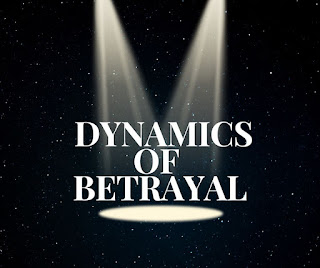Finding Joy in Your Marriage (Week 2: Nurture Your Fondness and Admiration)
Finding Joy in Your Marriage
(Week 2: Nurture Your Fondness and Admiration)
I can recall some of the first memories I have of meeting my wife more than 35 years ago. We met at a Baptist church, and were introduced by the young adult pastor. We had both just completed our first university degrees, and I had moved to Vancouver and was now attending a local interdenominational Protestant seminary, and Wendy was training to be a teacher.
Although we had previously attended universities in different cities, we were both deeply involved in the same campus ministry, so we shared an immediate spiritual connection. After a brief introduction, I tried to sit by her in church, but she grabbed some other girl and made her sit between us! I didn’t take this as rejection, and continued my pursuit.
Soon after this we both ended up going out for coffee with a large group of young adults from church. I made sure to sit across from her. We immediately fell into a deep conversation, so deep in fact, that we were both oblivious to the fact that all the other people had got up and left, and suddenly the last other person there, awkwardly said goodbye. We now were alone together, and clearly both enjoying that.
I got up my courage and asked Wendy out for lunch after church in a week or so. When the time came, I thought it would be a disaster, because I had laryngitis, and I could barely talk. I couldn’t risk postponing or cancelling because it was all about first impressions. So we went out for lunch, and she did almost all of the talking! Maybe this made me a better listener?
To be honest, I think I had an immediate strong impression that she was the one I was looking for. We quickly became an item in a Baptist sort of way. She let me sit beside her in church! I met her friends, and eventually her parents. We were engaged within 6 months, and married within a year by my Baptist grandfather!
Gottman’s second principle is Nurture Your Fondness and Admiration. While some people have tried to turn positive thinking into an almost magical activity, it certainly does seem to make sense that viewing the glass as half full, rather than half empty, makes a big difference in our life.
Gottman's research revealed that 94 percent of the time, couples who put a positive spin on their marriage history, have happier marriages.
From the point of view of our faith, it is actually a sin to assume the worst in other people and to unnecessarily reveal their faults to others who do not have the right to know. In general, constantly seeing the glass as half empty in our spouse is very damaging to your relationship.
I may need to qualify what I have just said. When we are confronted with actual bad behavior by other people, we of course may have recourse to proper authorities who have the right to know in serious matters. We can also say that when trust has been violated in a relationship, it may need to be earned back by better future behavior. We do need to forgive, but future trust may need to be earned, and in rare cases trust may never be warranted again.
During his initial marriage research Gottman identified four key negative behaviors that normally signaled a troubled marriage. Gottman calls these four behaviors the The Four Horsemen: Criticism, Contempt, Defensiveness, and Stonewalling.
.
Perhaps we should pause to say that we all display these behaviors from time to time. It was actually the frequency of these behaviors that was critical. In good marriages there were five good interactions for every one negative interaction (5:1). In troubled marriages the ratio was 0.5 :1, or more negative than positive.
The most corrosive of these behaviors is Contempt, or when we treat our partner with disrespect, by condescending, belittling them with sarcasm, or teasing them with hurtful humor. The classic body language for identifying contempt is eye-rolling, scoffing, or mimicking the other person.
For each of these negative behaviors there is also an antidote.The antidote for contempt is to nurture mutual fondness and admiration, or “to get in the habit of scanning for qualities and actions that you can appreciate” (p. 71).
A number of years ago, in 2016, my wife and I lost our oldest son, Wesley, to stage four brain cancer. During the time that Wesley suffered under treatment, and after his death, it was a very difficult time in our marriage as we tried to process our grief and deal with the emotions of the whole cancer ordeal. We decided as a couple to see a Catholic marriage counselor to receive support during this time.
Gottman's chapter, Nurture Your Fondness and Admiration, is a bit more sophisticated. It begins with a mini survey, and then offers four different exercises for nurturing fondness and admiration which touch on a variety of approaches.
Read 67-86, take the mini survey, and try at least one set of exercises together.




Comments
Post a Comment
Thank you for your comment on the threefoldcord blog. All comments are moderated.